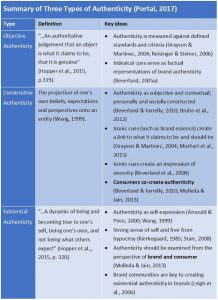With the surge of entrepreneurial spirits, SMB’s, start-ups, or large corporations have a desire to retain talent that embodies this sentiment. But there is a common thread within this temperament to have a strong daily drive. But what does it mean to hustle and how can we define hard work?
I was raised by parents that required me to play sports. It didn’t matter which sports I chose, but it was mandatory that I was participating in athletics. It wasn’t a requirement that I be good at it, I just had to put in the work.
Truth be told, I never became extraordinary at any one sport. It was an honor to be recognized as one of the few student-athletes to letter in three sports in high school and I was grateful to be invited to play lacrosse at a D1 school. I may have never felt the spotlight, but that wasn’t the lesson.
The “wins” I experienced, whether in my athletic or professional career, are, in most part, due to a trait that my parents wanted to instill from a young age.
This is what hard work is to me:
Put in the work, not time
It’s a misconception that putting in the time will result in success. The 10,000 hours’ principle is cliché. That’s all it is. This belief advises intense dedication –investing time to return growth. Rising early and staying late won’t mean much if I’m not actively developing my skills. Improvement is a result of incrementally increasing benchmarks, not a devotion of time.
Incremental increases
Hard work isn’t necessarily hard. It’s easy to set daily goals. This incremental increase is my long-term approach to development through short-term personal refinements. Regardless of the diurnal barriers faced, I retain the mindset that I only have one opponent, myself; be better today than I was (August 19, 2016).
Core Opponent
Identifying myself as the core opponent enables me to stay the course. To steadily perform, I resist the urge to compare myself to others. A rather unmentionable topic in a professional setting, but a factor in benchmarking performance: we are directly or indirectly compared against peers, creating a competitive environment within the team. Regardless of how peers respond to this sometimes counteracting dynamic, I remain focused on executing my plan. I’m solely responsible for advancing my performance and engagement.
Finding fortitude
It’s easy to have resolve in work that comes easy. Fortitude is tested when we are stretched. This could be by completing simple tasks that I want to put off for tomorrow or accepting assignments that contain a large amount of barriers. Either presents moments that question whether I can proceed independently or not. I find my fortitude by not getting overwhelmed in the overall work but prioritizing needs, addressing them one at a time. In those moments, I solve for the single thing, allowing me to maintain composure in a high-stress situation.
Sleeping it off
Hard work and sleeping are typically considered opposites. Nonetheless, if today is a win or a lose against a daily goal or finding fortitude, getting a good night’s sleep is a mental reset. We all have “those days”. To maintain positive momentum, I am patient with myself to not “overtrain” today if it impedes tomorrow. Taking time to regenerate for the hustle tomorrow serves me well.
Poppa didn’t preach hard work, he ingrained it; show up each day and be fully engaged. But these aspects of hard work aren’t novel and I could very well be preaching to the choir. I do want to emphasize that going through the motions just wastes time. Find ways to dial in your skills. And hard work isn’t about outshining peers but a routine to surpass your current state. Lastly, for our own mental health, balance fortitude and patience. I am forever grateful for my parents pushing me to not only play sports but to find my own daily drive.
Business & Finance Articles on Business 2 Community(26)
Report Post






